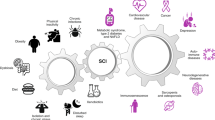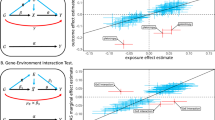Abstract
Background/Objectives:
Maternal fish consumption during pregnancy might influence the fetal immune system through anti-inflammatory effects of omega-3 fatty acids, and might affect the risks of childhood asthma and atopy. In Generation R, a prospective cohort study in the Netherlands, we examined the associations of first trimester fish consumption with childhood wheezing and eczema in the first 4 years of life.
Methods:
In total, 2976 mothers completed a 293-item semiquantitative food frequency questionnaire covering dietary intake in the first trimester. The occurrence of wheezing and eczema was yearly assessed by questionnaires.
Results:
Median weekly fish consumption was 83 (95% range 0–316) grams per week. We observed no consistent associations of maternal total-, lean- or fatty-fish consumption during pregnancy with the risks of childhood wheezing. Maternal shellfish consumption of 1–13 g per week was associated with overall increased risks of childhood wheezing and eczema (OR 1.20 (1.04, 1.40) and OR 1.18 (1.01, 1.37), respectively). Maternal fatty fish consumption of 35–69 g per week was associated with increased overall risks of childhood eczema (OR 1.17 (1.00, 1.38)), but maternal total- or lean-fish consumption was not.
Conclusions:
During pregnancy, shellfish consumption was associated with increased risks of wheezing and eczema, while fatty fish consumption was associated with a higher risk of eczema only. Maternal total fish or lean fish consumption were not associated with wheezing or eczema. Further studies are needed to replicate these findings and to explore underlying mechanisms.
This is a preview of subscription content, access via your institution
Access options
Subscribe to this journal
Receive 12 print issues and online access
$259.00 per year
only $21.58 per issue
Buy this article
- Purchase on Springer Link
- Instant access to full article PDF
Prices may be subject to local taxes which are calculated during checkout

Similar content being viewed by others
References
Duijts L . Fetal and infant origins of asthma. Eur J Epidemiol 2012; 27: 5–14.
Asher MI, Montefort S, Bjorksten B, Lai CK, Strachan DP, Weiland SK et al. Worldwide time trends in the prevalence of symptoms of asthma, allergic rhinoconjunctivitis, and eczema in childhood: ISAAC Phases One and Three repeat multicountry cross-sectional surveys. Lancet 2006; 368: 733–743.
Gluckman PD, Hanson MA, Cooper C, Thornburg KL . Effect of in utero and early-life conditions on adult health and disease. N Engl J Med 2008; 359: 61–73.
Calder PC, Kremmyda LS, Vlachava M, Noakes PS, Miles EA . Is there a role for fatty acids in early life programming of the immune system? Proc Nutr Soc 2010; 69: 373–380.
Devereux G, Seaton A . Diet as a risk factor for atopy and asthma. J Allergy Clin Immunol 2005; 115: 1109–1117., quiz 18.
Prescott SL, Calder PC . N-3 polyunsaturated fatty acids and allergic disease. Curr Opin Clin Nutr Metab Care 2004; 7: 123–129.
Gochfeld M, Burger J . Good fish/bad fish: a composite benefit-risk by dose curve. Neurotoxicology 2005; 26: 511–520.
Calvani M, Alessandri C, Sopo SM, Panetta V, Pingitore G, Tripodi S et al. Consumption of fish, butter and margarine during pregnancy and development of allergic sensitizations in the offspring: role of maternal atopy. Pediatr Allergy Immunol 2006; 17: 94–102.
Denburg JA, Hatfield HM, Cyr MM, Hayes L, Holt PG, Sehmi R et al. Fish oil supplementation in pregnancy modifies neonatal progenitors at birth in infants at risk of atopy. Pediatr Res 2005; 57: 276–281.
Dunstan JA, Mitoulas LR, Dixon G, Doherty DA, Hartmann PE, Simmer K et al. The effects of fish oil supplementation in pregnancy on breast milk fatty acid composition over the course of lactation: a randomized controlled trial. Pediatr Res 2007; 62: 689–694.
Furuhjelm C, Warstedt K, Larsson J, Fredriksson M, Bottcher MF, Falth-Magnusson K et al. Fish oil supplementation in pregnancy and lactation may decrease the risk of infant allergy. Acta Paediatr 2009; 98: 1461–1467.
Krauss-Etschmann S, Hartl D, Rzehak P, Heinrich J, Shadid R, Del Carmen Ramirez-Tortosa M et al. Decreased cord blood IL-4, IL-13, and CCR4 and increased TGF-beta levels after fish oil supplementation of pregnant women. J Allergy Clin Immunol 2008; 121: 464–70 e6.
Lauritzen L, Kjaer TM, Fruekilde MB, Michaelsen KF, Frokiaer H . Fish oil supplementation of lactating mothers affects cytokine production in 2 1/2-year-old children. Lipids 2005; 40: 669–676.
Olsen SF, Osterdal ML, Salvig JD, Mortensen LM, Rytter D, Secher NJ et al. Fish oil intake compared with olive oil intake in late pregnancy and asthma in the offspring: 16 y of registry-based follow-up from a randomized controlled trial. Am J Clin Nutr 2008; 88: 167–175.
Palmer DJ, Sullivan T, Gold MS, Prescott SL, Heddle R, Gibson RA et al. Effect of n-3 long chain polyunsaturated fatty acid supplementation in pregnancy on infants’ allergies in first year of life: randomised controlled trial. Bmj 2012; 344: e184.
Prescott SL, Barden AE, Mori TA, Dunstan JA . Maternal fish oil supplementation in pregnancy modifies neonatal leukotriene production by cord-blood-derived neutrophils. Clin Sci (Lond) 2007; 113: 409–416.
Romieu I, Torrent M, Garcia-Esteban R, Ferrer C, Ribas-Fito N, Anto JM et al. Maternal fish intake during pregnancy and atopy and asthma in infancy. Clin Exp Allergy 2007; 37: 518–525.
Salam MT, Li YF, Langholz B, Gilliland FD . Maternal fish consumption during pregnancy and risk of early childhood asthma. J Asthma 2005; 42: 513–518.
Sausenthaler S, Koletzko S, Schaaf B, Lehmann I, Borte M, Herbarth O et al. Maternal diet during pregnancy in relation to eczema and allergic sensitization in the offspring at 2 y of age. Am J Clin Nutr 2007; 85: 530–537.
Warstedt K, Furuhjelm C, Duchen K, Falth-Magnusson K, Fageras M . The effects of omega-3 fatty acid supplementation in pregnancy on maternal eicosanoid, cytokine, and chemokine secretion. Pediatr Res 2009; 66: 212–217.
Willers SM, Devereux G, Craig LC, McNeill G, Wijga AH, Abou El-Magd W et al. Maternal food consumption during pregnancy and asthma, respiratory and atopic symptoms in 5-year-old children. Thorax 2007; 62: 773–779.
Willers SM, Wijga AH, Brunekreef B, Kerkhof M, Gerritsen J, Hoekstra MO et al. Maternal food consumption during pregnancy and the longitudinal development of childhood asthma. Am J Respir Crit Care Med 2008; 178: 124–131.
Jaddoe VW, van Duijn CM, Franco OH, van der Heijden AJ, van Iizendoorn MH, de Jongste JC et al. The Generation R Study: design and cohort update 2012. Eur J Epidemiol 2012; 27: 739–756.
Klipstein-Grobusch K, den Breeijen JH, Goldbohm RA, Geleijnse JM, Hofman A, Grobbee DE et al. Dietary assessment in the elderly: validation of a semiquantitative food frequency questionnaire. Eur J Clin Nutr 1998; 52: 588–596.
Donders-Engelen M, VDHLHK Maten Gewichten Codenummers (Measures Weights Code Numbers). Vakgroep Humane Voeding, Landbouwuniversiten Wageningen en TNO Voeding Zeist: Wageningen; The Netherlands, 2003.
Heppe DH, Steegers EA, Timmermans S, Breeijen H, Tiemeier H, Hofman A et al. Maternal fish consumption, fetal growth and the risks of neonatal complications: the Generation R Study. Br J Nutr 2011; 105: 938–949.
Asher MI, Keil U, Anderson HR, Beasley R, Crane J, Martinez F et al. International Study of Asthma and Allergies in Childhood (ISAAC): rationale and methods. Eur Respir J. 1995; 8: 483–491.
Sonnenschein-van der Voort AM, Jaddoe VW, Raat H, Moll HA, Hofman A, de Jongste JC et al. Fetal and infant growth and asthma symptoms in preschool children: the Generation R Study. Am J Respir Crit Care Med 2012; 185: 731–737.
Jaddoe VW, van Duijn CM, van der Heijden AJ, Mackenbach JP, Moll HA, Steegers EA et al. The Generation R Study: design and cohort update 2010. Eur J Epidemiol 2010; 25: 823–841.
Beurs E . Brief Symptom Inventory. Leiden: The Netherlands.
Nohr EA, Frydenberg M, Henriksen TB, Olsen J . Does low participation in cohort studies induce bias? Epidemiology 2006; 17: 413–418.
Caudri D, Wijga A, Gehring U, Smit HA, Brunekreef B, Kerkhof M et al. Respiratory symptoms in the first 7 years of life and birth weight at term: the PIAMA Birth Cohort. Am J Respir Crit Care Med 2007; 175: 1078–1085.
Harpsoe MC, Basit S, Bager P, Wohlfahrt J, Benn CS, Nohr EA et al. Maternal obesity, gestational weight gain, and risk of asthma and atopic disease in offspring: a study within the Danish National Birth Cohort. J Allergy Clin Immunol 2012, pii S0091-6749: 01502–01503.
Henderson J, Granell R, Heron J, Sherriff A, Simpson A, Woodcock A et al. Associations of wheezing phenotypes in the first 6 years of life with atopy, lung function and airway responsiveness in mid-childhood. Thorax 2008; 63: 974–980.
Jenkins MA, Clarke JR, Carlin JB, Robertson CF, Hopper JL, Dalton MF et al. Validation of questionnaire and bronchial hyperresponsiveness against respiratory physician assessment in the diagnosis of asthma. Int J Epidemiol 1996; 25: 609–616.
Halldorsson TI, Thorsdottir I, Meltzer HM, Nielsen F, Olsen SF . Linking exposure to polychlorinated biphenyls with fatty fish consumption and reduced fetal growth among Danish pregnant women: a cause for concern? Am J Epidemiol 2008; 168: 958–965.
Miyake Y, Tanaka K, Yasutake A, Sasaki S, Hirota Y . Lack of association of mercury with risk of wheeze and eczema in Japanese children: the Osaka Maternal and Child Health Study. Environ Res 2011; 111: 1180–1184.
Acknowledgements
The Generation R Study is conducted by the Erasmus Medical Center in close collaboration with the School of Law and the Faculty of Social Sciences at the Erasmus University, Rotterdam, the Municipal Health Service, Rotterdam area, and the Stichting Trombosedienst and Artsenlaboratorium Rijnmond (Star-MDC), Rotterdam. We gratefully acknowledge the contribution of general practitioners, hospitals, midwives and pharmacies in Rotterdam. The general design of the Generation R Study was made possible by financial support from the Erasmus Medical Center, Rotterdam, the Erasmus University Rotterdam and the Netherlands Organization for Health Research and Development. Dr Vincent Jaddoe received an additional grant from the Netherlands Organization for Health Research and Development (ZonMw 90700303, 916.10159). Prof Oscar H. Franco has received a grant from Pfizer nutrition to establish a center on ageing research called ErasmusAGE. Dr Liesbeth Duijts is the recipient of a European Respiratory Society/Marie Curie Joint Research Fellowship—Number MC 1226-2009. The research leading to these results has received funding from the European Respiratory Society and the European Community’s Seventh Framework Program FP7/2007-2013—Marie Curie Actions under grant agreement RESPIRE, PCOFUND-GA-2008-229571 and from the seventh framework program, project CHICOS (HEALTH-F2-2009-241504).
Author information
Authors and Affiliations
Corresponding author
Ethics declarations
Competing interests
The authors declare no conflict of interest.
Additional information
Supplementary Information accompanies the paper on European Journal of Clinical Nutrition website
Supplementary information
Rights and permissions
About this article
Cite this article
Leermakers, E., Sonnenschein-van der Voort, A., Heppe, D. et al. Maternal fish consumption during pregnancy and risks of wheezing and eczema in childhood: The Generation R Study. Eur J Clin Nutr 67, 353–359 (2013). https://doi.org/10.1038/ejcn.2013.36
Received:
Revised:
Accepted:
Published:
Issue Date:
DOI: https://doi.org/10.1038/ejcn.2013.36
Keywords
This article is cited by
-
Prenatal antioxidant-enriched and pro-oxidant-contained food, IL4 and IL13 pathway genes, and cord blood IgE
Scientific Reports (2022)
-
Interactions between dietary habits and home environmental exposures on respiratory symptoms in Romanian school children: an analysis of data from the SINPHONIE project
Environmental Science and Pollution Research (2020)
-
Effect of gestational oily fish intake on the risk of allergy in children may be influenced by FADS1/2, ELOVL5 expression and DNA methylation
Genes & Nutrition (2019)
-
The Role of Hypoallergenic Formula and Dietary Supplements in the Prevention of Early Onset Allergic Disease
Current Pediatrics Reports (2016)
-
Early origins of chronic obstructive lung diseases across the life course
European Journal of Epidemiology (2014)



